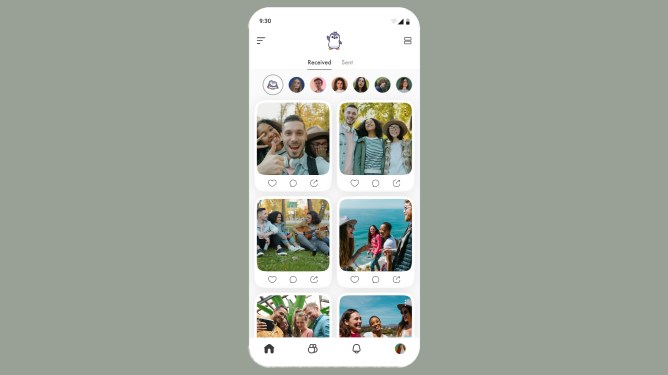In recent years, a new wave of photo-sharing apps has emerged, capitalizing on the idea that Instagram has become too curated. These apps create spaces for users to share unfiltered photos directly from their camera rolls. Locket tapped into lockscreen-based sharing, while Retro took a photo journaling approach. Yope is building an Instagram-like experience for private groups.
Now, Mayank Bidawatka, the co-founder of the Indian social network Koo, is releasing a new photo-sharing app called PicSee. Koo shut down last year after buyout talks collapsed. The PicSee app, released on Thursday for both iOS and Android, aims to automatically detect and share photos of friends that are in your camera roll. It does this without requiring you to use a messaging system like WhatsApp or Instagram.
Bidawatka explained that your friends likely have hundreds of photos of you that you do not possess. They may have forgotten to send these photos or forgotten about them entirely. PicSee scans for faces in your camera gallery and picks out photos of your friends. Bidawatka said he has been thinking about the problem of personal photo sharing for years. After announcing the shutdown of Koo last year, he had time to rethink this problem and work on it again.
If your friends are on PicSee, you can send them a sharing request. Once they accept, they will receive your first batch of photos of them. After that, the app will detect new photos of them in your camera roll and prompt you to send those as well. If you do not send them instantly, the app will automatically send those photos after 24 hours. Before that period ends, you can review the photos and choose not to send some. The photos are stored locally on your device in PicSee’s storage, and you can choose to download them to your main device storage. Users can also recall photos after sending them, which removes the images from the receiver’s PicSee.
The company states it has implemented numerous privacy controls. All processing to identify faces happens on the device. The company said that while sending photos, it establishes an encrypted connection. The photos are stored on your device, and the company does not store anything in the cloud. Bidawatka added that the app has a filter for NSFW pictures and blocks screenshots.
PicSee’s biggest challenge may be its selectivity. While it makes sense to have an always-on photo connection with close friends, family, or partners, most people would not want that level of automatic sharing with everyone they know. That creates a hurdle. Users already send photos to these close contacts through WhatsApp, iMessage, Instagram, and Snapchat, so PicSee will need to convince them to change their default behavior for a relatively small circle of relationships.
Furthermore, while the app detects photos of your friends on your phone, it does not solve the problem of when someone asks you for a photo you took at a shared event, like a concert, wedding, or party.
The company said it wants to address these social engagement features. The app already has a chat feature that allows people who are in a picture to leave comments under it. The company is also working on allowing users to create and manage albums, suggest albums, remove duplicates, and integrate with Google Photos and iCloud. The company also wants to use its face detection technology for videos on your camera roll.
Billion Hearts, the company behind the PicSee app, raised four million dollars in funding last year. The round was led by Blume Ventures with participation from General Catalyst and Athera Ventures.

